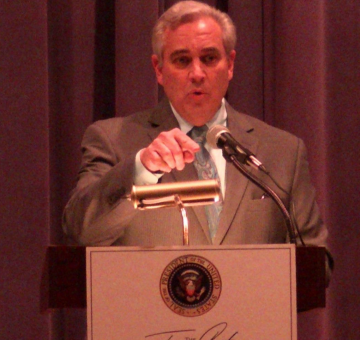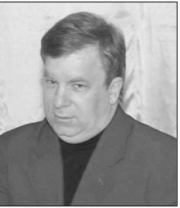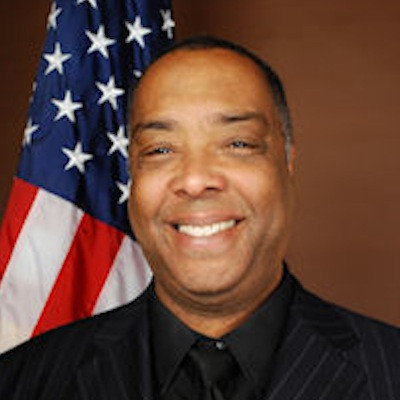Scoundrels: Conclusion
Monday, February 20, 2017
Each week, GoLocalProv will publish a chapter of the book Scoundrels: Defining Corruption Through Tales of Political Intrigue in Rhode Island, by Paul Caranci and Thomas Blacke.
The book uses several infamous instances of political corruption in Rhode Island to try and define what has not been easily recognized, and has eluded traditional definition.
The book looks at and categorizes various forms of corruption, including both active and passive practices, which have negative and deteriorating effects on the society as a whole.
GET THE LATEST BREAKING NEWS HERE -- SIGN UP FOR GOLOCAL FREE DAILY EBLASTBuy the book by CLICKING HERE
CONCLUSION
Corruption is not always easily recognized and, for years, it has eluded definition. This book has taken the various forms of corruption and placed them into three categories; traditional, circumstantial and situational. Further, it determined that each of those categories of corruption has both an active and a passive component. Despite certain circumstantial and situational acts of corruption not having a criminal component, each has a negative and deteriorating affect, not only on the individual(s) that fall victim to the corrupt acts but to society as a whole.
When an otherwise law abiding citizen falls prey to government corruption in any of its forms, an entire community begins to distrust government. Police are no longer viewed as impartial protectors of society and quasi-judicial bodies can no longer be seen as a place for the administration of justice. In many cases residents may decide to circumvent the proper channels of government choosing instead to take matters into their own hands. Additions may be built on houses without seeking the proper permits, or other actions may be taken without benefit of proper authority for fear that such permission would be unjustly denied. Nothing good can result from such citizen defiance of government, but one might understand how someone could be driven to act that way.
Exacerbating the problem are two totally separate issues that produce the same result. The first is complacency, a refusal to expose these actions for the corrupt deeds that they are. The second is acceptance, and this is perhaps the biggest problem when it comes to bringing an end to government corruption.
Too many people in the United States accept corruption as an enduring part of the day to day government business – perhaps even as an unchanging character flaw of human nature. After the arrest of three sitting councilmen in the Town of North Providence for shaking down legitimate businesses for the payment of bribes in exchange for the fair consideration of the permits they were seeking, one resident told a reporter that she didn’t see the need for all the fuss. After all, the three guilty councilmen were not hurting anyone, they were simply enriching themselves. This kind of attitude is dangerous and fosters the continuance of political and governmental corruption at all levels of government. The fact is that corruption of any kind is harmful to every citizen, even those who aren’t aware of its existence.
Until all residents unite in their opposition to, and the exposing of, ALL government corruption, nothing will change and our government of the people, by the people and for the people will continue to hurt the people it was intended to help.
Paul F. Caranci is a historian and serves on the board of directors for the RI Heritage Hall of Fame. He is a cofounder of, and consultant to The Municipal Heritage Group and the author of five published books including two produced by The History Press. North Providence: A History & The People Who Shaped It (2012) and The Hanging & Redemption of John Gordon: The True Story of Rhode Island’s Last Execution (2013) that was selected by The Providence Journal as one of the top five non-fiction books of 2013. Paul served for eight years as Rhode Island’s Deputy Secretary of State and for almost seventeen years as a councilman in his hometown of North Providence. He is married to his high school sweetheart, Margie. They have two adult children, Heather and Matthew, and four grandsons, Matthew Jr., Jacob, Vincent and Casey.
Thomas Blacke has devoted his life to marketing, media and public relations and currently runs his own marketing, PR and security consulting firm. He has worked on many high level political campaigns, served as a lobbyist, and has held leadership positions in the local Democrat Party. Thom is also a professional magician and escape artist who holds multiple Guinness® World Records for escape artistry with ten world records in all. Blacke is the Editor/Publisher of an international magazine and the co-creator of a TV reality show. This is his seventh book.
Related Slideshow: Rhode Island’s History of Political Corruption
Related Articles
- Scoundrels: Chapter 3 Part 1, Cash in the Dumpster
- Scoundrels: Chapter 2, Real Estate Is Not the Only Thing for Sale
- Scoundrels: Chapter 1, Bugs in City Hall
- “Scoundrels” Introducing Paul Caranci and Thomas Black’s Book on RI Political Corruption
- Scoundrels: Chapter 3 Part 2, Brusini Suffers Personal & Business Setbacks
- Scoundrels: Chapter 3 Part 3: Judge Domenic Cresto & Pre-Trial Shenanigans
- Scoundrels Part 3 Chapter 6: McMansions
- Scoundrels: Chapter 5 The Bloodless Revolution
- Scoundrels: Chapter 4 “It’s Not My Loan”
- Scoundrels Chapter 7: Politicians Protecting Their Own















